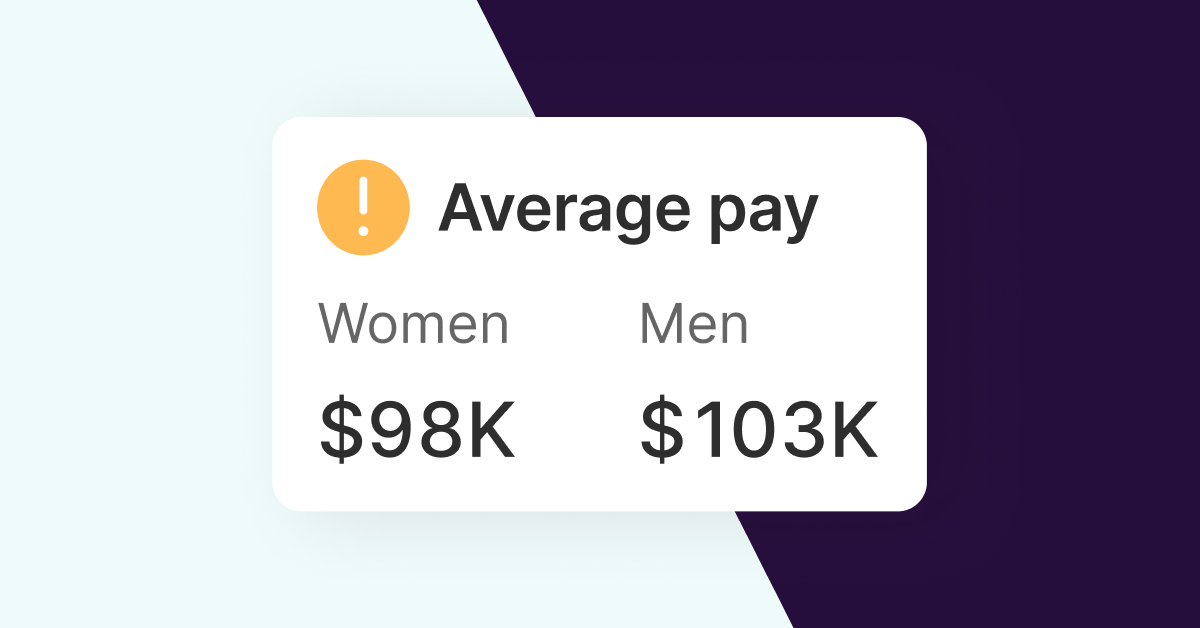In today’s volatile economic, political, and business conditions, the most valuable asset a company has is its relationship with its employees — which is embodied through the employee experience (EX). As a corporate strategy to help every employee do their best and be their best, EX is vital to organizational adaptability, resilience, and productivity. There are lots of contributing factors to a successful EX, but at its core, it comes down to fostering trust, transparency, and inclusion. One of the top ways to ensure that employees feel valued and treated fairly? How you pay them. However, it’s not about simply paying people more, but rather, paying them fairly and equitably.
That message came through loud and clear during Syndio’s recent webinar Demystifying Pay Equity with Josh Bersin: What Really Works, which was hosted in partnership with global industry analyst firm The Josh Bersin Company. It featured a discussion between Maria Colacurcio, Syndio CEO, Josh Bersin, CEO of The Josh Bersin Company and one of the leading HR and workplace industry analysts in the world, and Kathi Enderes, Ph.D. and Senior Vice President of Research for The Josh Bersin Company.
The webinar leveraged findings from The Josh Bersin Company’s extensive study of employee experience (EX) practices at over 1,000 companies to show how pay equity is a crucial component of EX that impacts business resilience, outcomes, and innovation.
Below we share 6 top soundbites from the webinar.
1. “If people feel that they’re not fairly treated in your company, there’s something in the back of their mind that’s going to prevent them from bringing their best self to work — and that’s going to affect the performance of your company.”
– Josh Bersin
One of the top three things that The Josh Bersin Company found created a highly responsive, resilient organization was the health and wellbeing of employees. Wellbeing includes psychological outlook, of which feeling fairly treated is a critical factor. Employees want to feel valued as individuals for their talent, experience, and skills. If they perceive that they are being treated unfairly, such as being paid inequitably compared to peers, your company will experience complaints, turnover, and reduced productivity. Josh Bersin compared a company to a family — if it feels dysfunctional, it doesn’t operate well.
“Under the covers of virtually every business change you have, taking care of people, making people feel fairly treated, and giving them a sense of belonging in your organization is perhaps the most important business strategy you have.”
2. “‘Using fair and equitable rewards and recognition programs’ was #6 of all 75 [essential practices of EX] — so it’s very, very important to business outcomes, people outcomes, engagement, retention, and being a Best Place to Work.”
– Kathi Enderes
In their study, The Josh Berson Company rated 75 essential practices of EX based on their impact on business outcomes, people outcomes, and innovation outcomes. The sixth most important practice was “Using fair and equitable rewards and recognition practices,” i.e. pay equity. What doesn’t matter as much? The more traditional EX drivers such as perks and physical space. It’s clear that fostering a fair, caring, inclusive culture and acting with integrity and transparency has much greater ROI than investing in amenities and other externals.
3. “It isn’t the level of pay that creates employee engagement — it’s the fairness of pay.”
– Josh Bersin
Pay alone is not a top driver of EX. However, paying people equitably is crucial to ensuring people feel they are valued fairly compared to their colleagues. Transparency is also important. As Josh Bersin said in the webinar, “ You don’t have to be the highest paid company in your industry to get great people, but you do need to communicate your [pay] strategy.”
4. “This business of pay equity isn’t just something you do to feel good, or to be responsible. It’s really a business issue of building a workforce that can survive and sustain itself — and perform.”
– Josh Bersin
A key theme throughout the webinar was that achieving pay equity isn’t just a good thing to do — it’s proven to be good for business. Research from The Josh Bersin Company found that companies that make rewards and recognition fair and equitable are:
- 4x more likely to have excellent business outcomes
- 5x more likely to have outstanding people outcomes
- 7x more likely to innovate and adapt to change
“When [pay equity] really catches fire is when the CEO and the CFO say ‘This is about the performance of our company. This is about making money, growing the company, and taking care of customers through our employees.’ When they understand that formula, they get it.”
5. “What [Syndio is] doing — which is very pioneering — is giving leaders and HR departments near real-time data on the equity implications of every pay, reward, hiring, and promotion decision.”
– Josh Bersin
So how can companies actually make measurable progress towards fair and equitable pay? Syndio’s Workplace Equity Platform helps analyze, resolve, and prevent disparities in pay and opportunities. Combined with ongoing support from our team of expert advisors on legal best practices, statistics, reporting, and communications, companies can adopt a modern, data-based approach to unlocking fairness and opportunity within their workplace — and prove to employees that they are taking action in areas that matter most to them. According to Josh Bersin, what makes Syndio’s solution stand out is the fact that it is purpose-built by experts for workplace equity — not just a feature tacked on to a more general HR solution. Bersin said, “The innovations Syndio is doing are very unique.”
6. “The cost of equity is not high. The cost of equity is really kind of zero. It’s just a matter of doing the work.”
– Josh Bersin
As a critical success factor for attracting and retaining talent in today’s employee-driven employment landscape, workplace equity is not a nice-to-have, it’s a business imperative. And it’s the cost of not doing it that is the real risk. In the era of pay transparency, stakeholders including investors, boards, employees, job seekers, regulators, and more are all putting increasing pressure on companies to deliver progress around equitable workplace outcomes — putting business outcomes including brand reputation and financial performance at stake.
“The equity experience in your company is one of the most important parts of your performance in the market.”
There’s a whole lot more where that came from.
These soundbites are just a few top highlights from the Demystifying Pay Equity with Josh Bersin: What Really Works webinar. Watch the on-demand recording for the full discussion around how pay equity impacts the Employee Experience and business outcomes, including study findings, stats, and an insightful Q&A.

